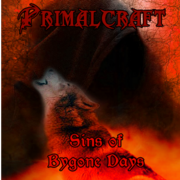For a moment after Mr. and Mrs. Darling left the house the night-lights by the beds of the three children continued to burn clearly. They were awfully nice little night-lights, and one cannot help wishing that they could have kept awake to see Peter; but Wendy’s light blinked and gave such a yawn that the other two yawned also, and before they could close their mouths all the three went out, dreaming that they were Suns, in their own land of Nod.
There was another light in the room now, much brighter than the night-lights, and in the time we have taken to say this, it had been in all the drawers in the nursery, looking for Peter’s shadow, rummaged the wardrobe and turned every pocket inside out, pausing to knot the belts and shoelaces together in an horrible mess, despite how neatly they had been set down. It was not really a light; it made this light by flashing about so quickly, but when it came to rest for a second you saw it was a fairy, no longer than your hand. It was a girl fairy called Tinker Bell exquisitely gowned in a shirt made of white flowers, cut low and square, and golden spider-silk leggings. She revelled in her silhouette, feeling that the garments showed off her embonpoint figure to the best of advantages.
A moment after the fairy’s entrance the window was blown open by the breathing of the little stars, and Peter dropped in. He had carried Tinker Bell part of the way, and his hand was still messy with the fairy dust, which made it glow like a candle in the darkness.
“Tinker Bell,” he called softly, after making sure that the children were asleep, “Tink, where are you?” She was in a jug for the moment, and liking it extremely well; she had never been in a jug before. It reminded her a little of being inside a huge conch shell, but instead of a fleshy pink, the walls were as white as bone, and perfect for reflecting her light.
“Oh, do come out of that jug; tell me, do you know where they put my shadow?”
The loveliest tinkle as of golden bells answered him. It is the fairy language. You ordinary children rarely hear it these days, but if you were to hear it you would know that you had heard it once before.
Tink said that the shadow was in the big box, and led him over to the chest of drawers. Peter jumped at the drawers, scattering their contents to the floor with both hands, as kings toss pennies to the crowd. In a moment he had recovered his shadow, and in his delight he forgot that he had shut Tinker Bell up in the drawer.
If he thought at all (but I don’t believe he ever thought), it was that he and his shadow, when brought near each other, would join like drops of water, and when they did not he was frightfully appalled. He tried to stick it on with soap from the bathroom, but that also failed. A shudder of horror passed through Peter, and he sat on the floor and cried. He was not used to things being uncooperative, unless they were pirates or Haida.
His sobs woke Wendy, and she sat up in bed. She was not alarmed to see a stranger crying on the nursery floor; she was only interested, for her dreams were often much stranger than this.
“Boy,” she said, “why are you crying?”
Peter could be exceeding polite, having learned the grand manner at fairy ceremonies in Kensington Gardens, and he rose and bowed to her beautifully. She was much pleased, and standing, bowed regally to him from the bed. Wendy did not curtsey to anyone.
“What’s your name?” he asked.
“Wendy Moira Angela Darling, or Madcap Wendy,” she replied with some satisfaction. “What is your name?”
“Peter Pan.”
She was already certain that he must be Peter, but it did seem a comparatively short name.
“Is that all?”
“Yes,” he said rather sharply. He felt for the first time that it was a shortish name, and that there might be something wrong with it.
“I’m so sorry,” said ‘Madcap’ Wendy Moira Angela, looking down her nose at him a little. The fire poker was still a comforting lump bumping against her feet.
“It doesn’t matter,” Peter gulped, crossing his arms. This criticism compounded with the misery of his independent shadow to make him feel approximately a foot shorter.
She asked where he lived.
“Second star to the right,” said Peter, “and then straight on till morning.”
“What a funny address!”
Peter had a sinking. For the first time he felt that perhaps it was a funny address, and the sensation of embarrassment made him angry.
“No it isn’t,” he disagreed.
“I mean,” Wendy said, trying to be nice, “is that what they put on the letters?” She wondered for a moment whether there was a special type of postman required to deliver to such strange addresses.
He wished she had not mentioned letters.
“Don’t get any letters,” he said, taking refuge in a momentarily genuine sense of contempt.
“But your mother gets letters?” Mrs. Darling received basketfuls, every other week. Even though securely married to Mr. Darling, she was still the life and soul of every event, and a goodly number of men, who ought to know better, still fancied themselves in love with her.
“Don’t have a mother,” he retorted. Not only had he no mother, but he had not the slightest desire to have one. He thought them very over-rated persons, always trying to control a child. Wendy, however, felt at once that she was in the presence of some great and legendary figure.
“O Peter, no wonder you were crying,” she said, and got out of bed and joined him barefoot on the floor.
“I wasn’t crying about mothers,” he said rather indignantly. “I was crying because I can’t get my shadow to stick on. Besides, I wasn’t crying.”
“It has come off?”
“Yes.” Then Wendy saw the shadow on the floor, looking so draggled, that she was instantly a little sorry for Peter.
“How awful!” she said, looking at her own obedient shadow, but she could not help smiling when she saw that he had been trying to stick it on with soap.
Fortunately she knew at once what to do. “It must be sewn on,” she said, just a little patronisingly. “Soap won’t work. That’s only good for cleaning things.”
“What’s sewn?” he asked.
“You’re dreadfully ignorant, aren’t you?”
“No, I’m not.”
“Well, it will need needles and thread to make everything join properly.”
Peter bit at his lip with his tiny teeth. “I don’t know what that means!” he burst out. “Tink!” He shouted, “Come and sewn my shadow and I together!”
“Sew, silly,” said Wendy. “Sewn is the past tense. Who’s Tink?”
“I don’t care if it’s past the tents or before them,” Peter retorted. “Tinker Bell is my fairy, and she will help me fix my shadow.”
Wendy’s heart went flutter with a sudden thrill.
“Peter,” she cried, catching at his arm, “you don’t mean to say that there is a real, actual fairy in this room!”
“She was here just now,” he said a little impatiently. “You don’t hear her, do you?” and they both listened.
“The only sound I hear,” said Wendy, “is like a tinkle of bells.”
“Well, that’s Tink talking, that’s the fairy language. I think I hear her too.”
The sound came from the chest of drawers, and Peter made a merry face. No one could ever look quite so merry as Peter, and the loveliest of gurgles was his laugh. He still had his first laugh, which could be quite infectious.
“Wendy,” he whispered gleefully, “I do believe I shut her up in the drawer!” They giggled together.
He let poor Tink out of the drawer, and she flew about the nursery screaming with fury. “You shouldn’t say such things,” Peter retorted. “Of course I’m very sorry, but how could I know you were in the drawer?”
Wendy was not listening to him. “Peter,” she cried, “make her stand still and let me see her!”
“They hardly ever stand still,” he said, but for one moment Wendy saw the tiny figure come to rest on the cuckoo clock.
“O the lovely!” she cried, though Tink’s face was still distorted with rage.
“Tink,” said Peter amiably, “this lady says she wishes you were her fairy.”
Tinker Bell answered insolently.
“What does she say, Peter?”
He had to translate, and was foolish enough to do so with complete accuracy. “She is not very polite. She says you are a great ugly girl, and that she is my fairy.”
He tried to argue with Tink. “You know you can’t be my fairy, Tink, because I am Peter Pan and you are a just a pixie.”
To this Tink replied in these words, “You silly ass,” and disappeared into the bathroom to tug the towels to the ground and clog the drains with them.
“She is quite a common fairy,” Peter explained apologetically, “she is called Tinker Bell because she mends pots and kettles, when she is employed. But she followed me from Neverland and found my shadow, so I shan’t pull her wings tonight.”
“Where is Neverland?”
Peter wrinkled his nose. “I told you, Wendy, second star from the right and straight on until morning.”
Wendy’s hazel eyes narrowed in thought for a moment. “I can put you and your shadow back together, Peter,” she said, “but you have to take me to Neverland in exchange.”
“I could just find someone else to join us together, and I wouldn’t have to lug them along with me.”
“They wouldn’t be able to do it properly, and it would fall off and get lost forever. It would look painfully strange.”
“What’s the proper way?” Peter demanded. He didn’t want to look painfully strange.
“Say you’ll take me with you, and I’ll do it.” She spoke the words with a carefully calculated air of boredom, but watched closely from the corners of her eyes.
“All right then, I will.”
Wendy immediately spat on her palm and presented it. “Shake on it.”
The deal was duly made in a sacred, unbreakable clasp.
Wendy was exulting in his ignorance. “I shall perform surgery on you, Peter Pan!” she said, and she promptly went and found her first aid bag, for she wished to be a roving battlefield medic if a position as first girl on a merchantman ship could not be got. Pulling loose her long, curly hair, she began sawing at it with her scissors, until the locks scattered about their feet on the floor.
“How will this help my shadow?” Peter demanded, dancing with impatience.
Wendy turned her head to and fro delightedly, enjoying the short swishing sensation of her new, albeit crooked, bob.
“I needed thread for my needle,” she informed him wisely, “and human hair is the best for this sort of thing.” Collecting up a few of the longest strands, she pressed Peter’s shadow close to his foot.
“I daresay it will hurt a little,” she warned him.
“O, I shan’t cry,” said Peter, who was already of the opinion that he had never cried in his life. So he clenched his teeth and did not cry, and soon his shadow was behaving properly, though still a little creased, and his cheeks were mostly dry.
“Perhaps I should have flattened it under a book,” Wendy mused, but Peter, indifferent to appearances was now jumping about in the wildest glee. Alas, he had already forgotten that he owed thanks for his re-joined body to Wendy. He thought he had attached the shadow himself. “How clever I am!” he crowed rapturously, “O, the cleverness of me!”
It is humiliating to have to confess that this conceit of Peter was one of his most fascinating qualities. To put it with brutal honesty, there never was a cockier boy; and a good thing it is, too. Many more of them, and the world might have given up on children altogether.
But for the moment Wendy was furious. “You little braggart,” she exclaimed, with frightful sarcasm; “of course I did nothing!”
“You did a little,” Peter said carelessly, and continued to dance, admiring himself.
“A little!” she replied with hauteur; “I see there’s no further use talking to you then, you ungrateful little monkey,” and she turned away, packing up her scissors and needle with the homemade bandages. Her stiff shoulders rebuked him most poignantly, and she refused to glance even once in his direction. She sprang in the most dignified way into bed and presented her back to him, crossing her arms furiously under the blankets.
To induce her to look up he pretended to be going away, and when this failed he sat on the end of the bed and tapped her gently with his foot. “Wendy,” he said, “don’t ignore me. I can’t help crowing, Wendy, when I’m pleased with myself.” Still she would not look up, though she was listening keenly, for her thoughts were still fixed upon Neverland.
“Wendy,” he continued, in a voice that no woman has ever yet been able to resist, “Wendy, one girl is more use than twenty boys.”
Now Wendy was every inch a woman, though there were not very many inches, and she turned her head slightly, to favour him with her profile.
“Do you really think so, Peter?”
“Yes, I do.”
“I think it’s perfectly sweet of you,” she declared, “I’ll speak to you again now,” and she sat with him on the side of the bed.
When children are introduced, it is customary for them to ask each other’s age, often before they swap such unimportant and temporal things as names, and so Wendy, who always liked to know as much as possible about everything in particular, asked Peter how old he was. It was not really a happy question to ask him; it was like an examination paper that asks grammar, when what you want to be asked is about the pharaohs.
“I don’t know,” he replied uneasily, “but I am quite young.” He really knew nothing about it, he merely had some vague suspicions, but he said at a venture, “Wendy, I ran away the day I was born.”
Wendy was quite surprised, but interested; and she indicated with a jerk of her chin, that he could sit nearer her. Their feet dangled and kicked over the edge of the bed, as small fishes might do when at rest in a bed of weeds.
“It was because I heard Father and Mother,” he explained in a low voice, “talking about what I was to be when I grew up and became a man.” He was extraordinarily agitated now. “I don’t want ever to be a man,” he said with passion. “I will always be a boy and have fun. So I ran away to Kensington Gardens and lived a long, long time among the wild birds and fairies.”
She gave him a look of the most intense admiration. “I knew when Mother said that I must grow up that I wouldn’t, and I was planning to run away with a gypsy caravan to avoid it, but I could never find one idling by at the right moment.”
“Huh,” said Peter, “travellers are fun all right, but even their children are expected to grow up. No, fairies are the crowd you want to run with, if you want to remain not-a-grownup.”
To know fairies struck Wendy as quite delightful, for Nana had been sure to tell the children of all the mischief they were prone to (as a means of ensuring they avoided bad sorts), although it had had rather the opposite effect.











Comments (0)
See all